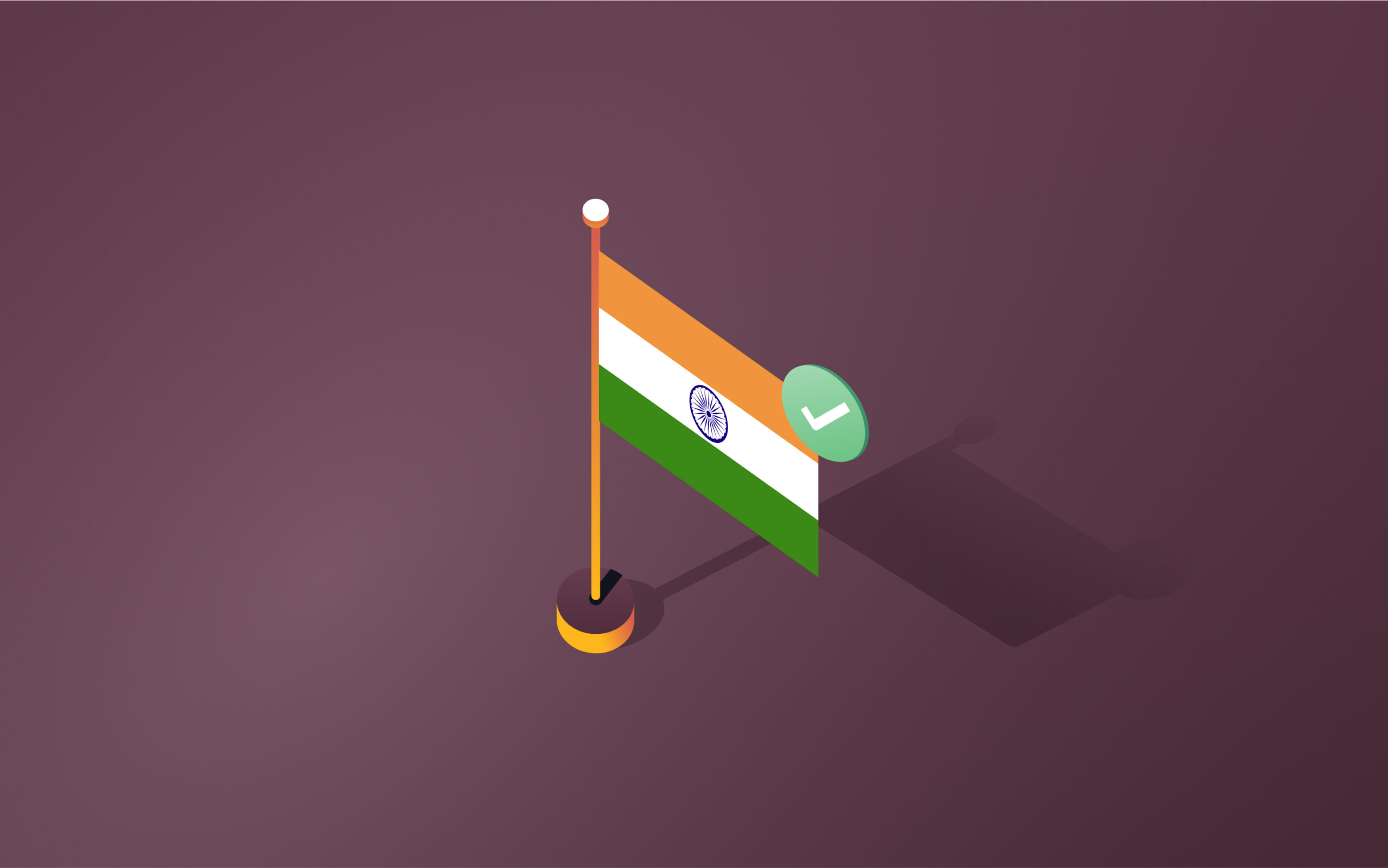Work permits for employees in India: A complete guide for employers [2025]
If you’re hiring in India, you should make sure your prospective employee is legally allowed to work there. Foreign nationals (even if they’re of Indian origin) looking to join India’s vibrant expat community need visas issued by the Indian government before they move for work. And they often need sponsorship from registered employers.
Learn about everything companies need to know regarding Indian work visas—including the bevy of available types, eligibility criteria, and how to sponsor an applicant.
What is a work permit in India?
A work permit (or work visa) in India is a legal document issued by the Indian government that allows foreign nationals to legally enter, live, and work in the country for a specific period of time. After the visa’s expiry date, the holder either applies for an extension or returns to their home country.
Work permits—many of which are called Employment visas or E visas—are issued by the Bureau of Immigration of India’s Ministry of Home Affairs. E visas are generally not available to foreign workers until they have an employment contract with a registered Indian company that sponsors the applicant.
Who needs a work visa in India?
Foreign nationals who aren’t Indian citizens and don’t have permanent residency in India usually need to obtain a work permit. Eligible workers include (but aren’t limited to):
- Foreign employees of an Indian company
- Non-Indian employees and senior managers of a foreign company with a branch office in India
- Members of a non-government organization (NGO)
When you send an offer letter to a new hire in India, it should include a clause about the offer being contingent on their eligibility to work in India legally.
How long does it take to get a work permit in India?
Processing times for getting a visa depend on an applicant’s country of origin, type of visa, intended length of stay, and the workload of Indian immigration authorities. You should expect at least three business days, but processing times could stretch out to months, so it’s advisable to start the process as soon as you know you need an Indian visa. The Indian consulate or embassy in an employee’s country of origin will have the most up-to-date information.
Types of work visas in India
Indian work permits vary according to different skill sets, applicant characteristics, and work timeframes that range from six months to five years. Visas for foreign professionals who want to legally work in India include:
- Employment visa (or E visa): For skilled foreign nationals who are sponsored to work for an Indian company or multinational corporation with an Indian presence. NGO workers can get an E visa provided their monthly salary is at least INR 10,000. Applicants can try for a single entry visa if they don’t plan to travel or a multiple entry visa if they plan to leave the country intermittently.
- Business visa (or B visa): This is for prospective business owners looking to establish a corporate presence in India. It can also be used for investment purposes or for business leaders who travel to India for meetings.
Keep in mind that foreign nationals looking to travel to India for recreation need to apply for a separate tourist visa.
Application process for Indian work visas
Indian work visas have separate eligibility requirements depending on the type of work and length of stay. Generally, applicants will need a passport from their country of origin, identity photos, an employment contract from a company registered in India, and proof of that company’s registration. Additional requirements may include financial statements, a resume written in English, education certificates, and tax liability statements.
Below are the important steps to expect when applying for an Indian work permit:
- Applicants can go to the Indian Government’s website to apply for a visa online. If an applicant is vying for an E visa that requires sponsorship, they’ll need to provide their sponsor’s employment contract and registration certificate. They’ll also need to provide a facial and fingerprint scan.
- After submitting the application form online, visa applicants also need to print out a physical copy and bring it to an embassy with passport and ID photos. If approved, the applicant can either pick up the visa at the embassy or get it in the mail.
- All foreigners who plan to spend more than six consecutive months in India need to register with a Foreign Regional Registration Officer (FRRO), Foreigners Registration Officer (FRO), or local police superintendent. This has to be done within two weeks of a new visa holder’s arrival, otherwise penalty fees kick in.

Easily comply with labor laws
See RipplingFAQs about work permits for employees in India
What are the required documents to apply for an India work permit?
When applying for an E visa in India, the High Commission, embassy, or consulate of India requires the following documents:
- A valid passport
- Passport photos with a white background
- Proof of employment with a company registered in India
- Registration documents from your employer sponsor
- Proof of professional expertise
To apply for foreign supplemental registration with the FRO or FRRO, visa applicants also need:
- Four ID photos
- Their approved visa and passport with stamped proof of immigration
- Proof of Indian residency
- A request letter from your employer sponsor
- A letter of undertaking signed by a notary
If you’re applying for a B visa, other documents you’ll need to include are:
- Proof of your business
- Articles of incorporation for your business, with names of company directors
- A Director’s Identification Number
- A company PAN card
Visa holders who stay in India for more than a year may need to provide additional medical reports. For a full list of supporting documents needed for each visa, read the Bank of India’s memo.
How much does it cost to get an Indian work permit?
The cost of Indian work visas varies depending on the nationality of the applicant, length of stay (a shorter duration will generally be cheaper), and registration services needed to submit an application. There are generally fees for submitting the visa application form and for processing it.
As a ballpark estimate, applicants should expect to pay between $140 and $1,000 (in USD) to apply for an Indian work permit. But you should check with your local consulate, embassy, or High Commission to get an up-to-date quote.
Are family members included in work visa applications in India?
The Indian government typically allows visa holders to bring spouses and dependent children into the country with them. The visa holder may need to provide documents that prove the relationship such as marriage and birth certificates. They also may need to provide some proof of financial standing.
Family members may also need to submit their own applications for entry visas and pass security checks. If the primary visa holder’s application is approved, the family members are generally eligible to stay for the same duration.
How do you renew your Indian work permit?
Not all Indian work visas can be renewed. But if you have an E visa or student visa, you can submit a request for overstaying to your local FRO or FRRO. Just be sure to start the application no later than two months before your current visa expires.
Many B visa holders may have to temporarily leave India and reapply for a new visa instead of renewing it outright. But you should check with a consular official in your country of origin for the current details.
Is there a digital nomad visa in India?
Currently, there is no digital nomad visa in India. Check out our digital nomad guide to see the countries that offer a digital nomad visa.
- undefined
Rippling and its affiliates do not provide tax, accounting, or legal advice. This material has been prepared for informational purposes only, and is not intended to provide, and should not be relied on for tax, legal, or accounting advice. You should consult your own tax, legal, and accounting advisors before engaging in any related activities or transactions.










